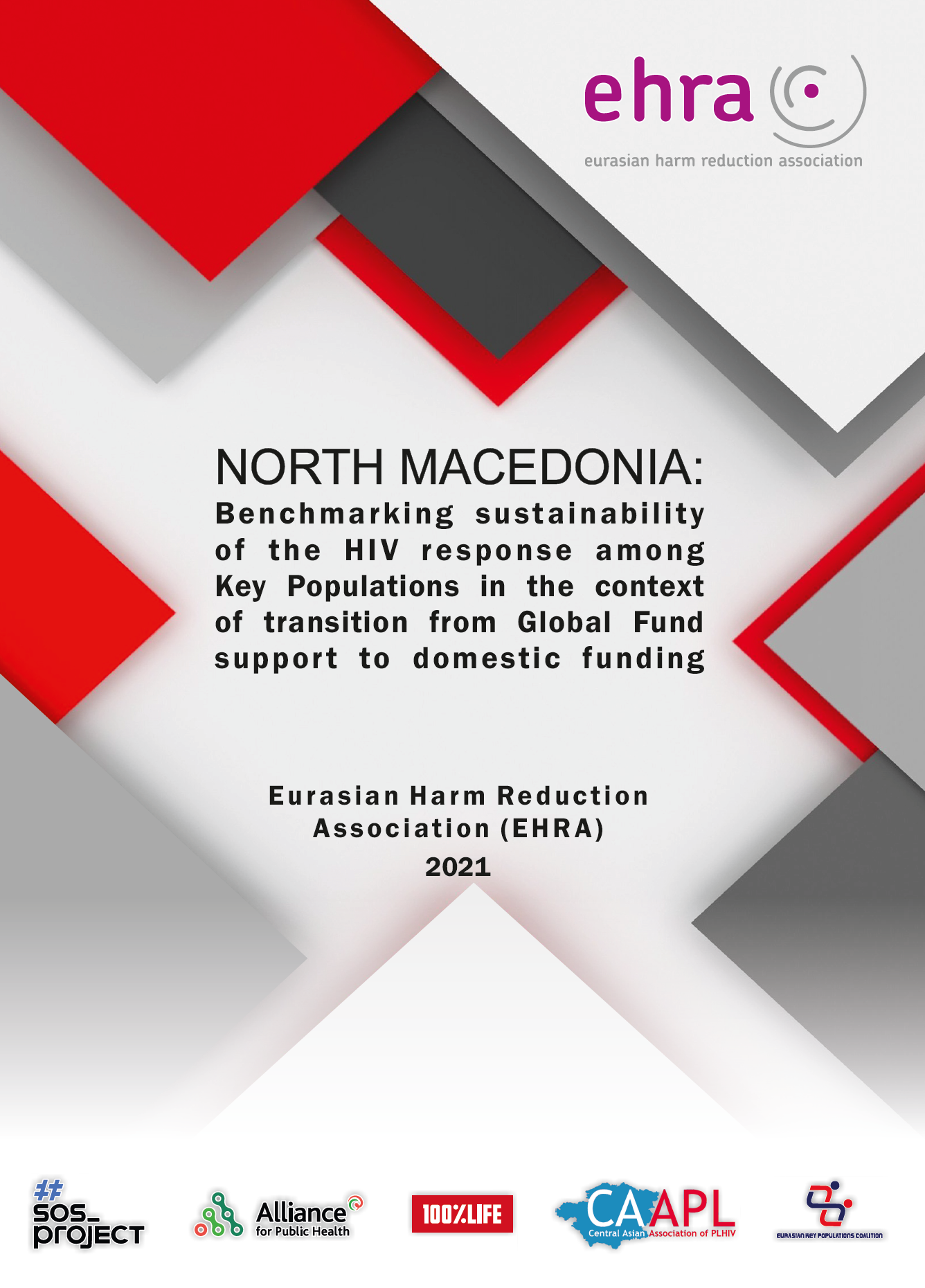This assessment of the fulfillment of key public commitments with respect to the sustainability of the HIV response among key populations in the context of transition from Global Fund to domestic funding in North Macedonia was conducted using the Methodological Guide and Transition Monitoring Tool (TMT) developed by EHRA. A number of national commitments contributing to ensuring sustainability of the HIV response were identified and prioritised and subsequently analysed based on available data, as well as information from key informants. The assessment was conducted and led by two national reviewers with the support of local HIV experts and representatives of affected communities from organisations involved in advocacy and service delivery for KAPs and PLHIV (the national reference group).
With regards to the fulfillment of the prioritised transition and sustainability-related commitments that were the subject of the analysis, North Macedonia appears to have demonstrated substantial progress in two key domains – financing (progress score of 80%) and service provision (73%); average progress in the domains of data and information (63%) and human resources (55%); moderate progress in governance (43%); and low progress in the domain of drugs, supplies and equipment (0%).
Progress in the fulfillment of the selected transition-related commitments by health system domains in North Macedonia

From the point of view of programmatic areas, substantial progress in fulfilling the selected transition and sustainability-related commitments was observed in the area of HIV treatment (progress score of 71%), while average progress was achieved in the area of HIV prevention among KAPs (progress scores of 53% for MSM, 56% for SWs and 62% for PWID).
Progress in the fulfillment of the selected transition-related commitments by programmatic areas

This document should be used to assist CSO’s, key affected communities and partners to remain more informed and engaged in the monitoring of the transition process from donor to domestic funding and to thereby advocate for the implementation of activities that will lead to the sustainability of the national HIV response

